The go-to-cop whenever Mumbai's in distress-mode, D Sivanandhan's book looking at using Chanakyan strategies for better policing has sold over 12,000 copies within a month of its release. dna's Yogesh Pawar caught up with the top-cop for an interview...
Not many would find anything common between a 4th Century BC geo-strategist and geo-politics expert with policing. So how did Chanakya’s 7 Secrets of Leadership happen?
It isn’t like I went looking for Chanakya’s teachings and incorporated them in my functioning. I was fond of reading about him and his teachings from early on. This of course got further impetus at the Intelligence Bureau where I spent six years. Kautilya (Chanakya)’s Arthshastra was part of the syllabus there. Other works like The Prince (a 16th-century political treatise) by the Italian diplomat and political theorist Niccolò Machiavelli only reinforced these teachings. In my time with the police force I found myself sub-consciously taking a certain direction both in problem-solving and decision-making. Over a period of time I realised the extent to which I’d internalised many of these teachings. But simply going only by bookish knowledge isn’t enough. As someone who led the police force I often discovered Chanakya in my constables. In the book Radhakrishnan Pillai has collated my experiences and learning from the challenges faced.
The appointment of Rakesh Maria as Mumbai Commissioner of Police took so long. Would you agree that wily politicians use Chanakyaneeti to divide and rule so that they can keep the police dancing to their tune?
That indeed seems to be the case. The sheer time and effort that must go into engineering some of our famous scams makes it seem like our netas have mastered Chanakyaneeti. But there is a difference. They are doing it to further their own interests, that of their families or cronies or their parties. Chanakya himself advocated its use for the collective good. You know when I took over as Joint Commissioner almost 100 people had been killed by gangsters. So one had to use the same cunning that the other side was using to contain and neutralise them.
Do you agree with the popular view linking number of senior police officers quitting the force with being sidelined as netas push for their own favourites.
In my view this 'being sidelined' business is just a bogey created by people who want to take it easy. There is such a crying dearth of good officers that even someone moderately hardworking will end up coming to everyone’s attention. And even the politicians cannot go out of their way to target and harass them beyond a point. Most people who make such claims while quitting had it coming because of their style of working. Look at me, many will say I got plum postings. Yes I did without asking for them. But you must also remember that - whether it was Jt CP in 1998 when the underworld had the upper hand or as CP in the aftermath of the 26/11 terror attack - these were posts no one was willing to take given the challenges. Now they are coveted posts and people will be willing to pay for them. So those who complain about being sidelined need to introspect on their own shortcomings.
What is your take on senior IPS officers getting into politics?
I refuse to believe that a senior IPS officer or any bureaucrat will suddenly on whim decide to go and join politics. Its just the case of a long-held latent desire towards which they work even while holding a post. I’m not very confortable with this idea of bureaucrats turning netas.
Haven’t you been approached yourself?
Political parties are far smarter than that. They know having me in their fold will be a liability given how brutally frank and forthright I am. I have a very strong sense of right and wrong, legal and illegal. Even people approached me for favours I’d do it within seconds if it was legal and if it was not, their chances of pushing ahead would be marred once I became privy to what was being asked for. Not that I’m complaining (laughs) but no political party has called and I know it will stay that way...
Do you agree there should be a cooling-off period before an IAS/IPS/IFS officer joins politics to avoid suspicions that they are being rewarded for favours while in service?
You know individuals don’t exist in a vaccum. Given our upbringing, exposure, value system and to an extent even our religious beliefs all of us in varying degrees are political animals. Obviously the person who decides to join politics has worked in that direction for years together, doling out favours and cultivating decision-makers. A cooling-off period of a year or two will hardly dissuade someone so steeped in desire. You know I remember my shock at seeing a DIG rank senior police officer participate in an RSS Guru Purnima procession in khaki shorts within 10 days of retiring from the police force in Nagpur in 1988. So in my opinion all this cooling off should be forgotten. If someone wants to go expose his true colours and make a fool of himself the next day after retiring, why should we deny him the pleasure?
Some advocate development and integration to end alienation while some advocate strong-arm tactics air-strikes. The recent Naxal-attack in Sukma, Chhatisgarh which killed 15 police personnel has renewed this debate. As someone who worked in Gadchiroli in the Red Corridor, what is your take?
The unfortunate recent Sukma incident or earleri one in Dantewada when 77 policemen were killed is a reminder of having locals in the police force. When the security personnel don’t know the local terrain, the people, the language it puts them at a distinct disadvantage. And to make it worse poor training means they do not follow standard operating procedures.
I have worked for over three years in the Naxal belt and was able to with the help of fine officers SadanandDate and Laxminarayana, Jagannathan and was able to build confidence to an extent that most of the Maharashtrian cadres among the Naxals surrendered. I sent back the personnel from neighbouring districts and hired local adivasis. This changed the game completely.
Didn’t the Salwa Judum begin like this before going horribly wrong?
Like we can’t attach a pacemaker outside the body, we can’t transplant some ideology from outside and expect it to work. At a time when world-over the emphasis is on empowerment and education as the way out how can we give people guns and call that empowerment? I am glad that from the top to bottom police in Maharashtra have been on the same page and never allowed Salwa Judum or approaches like it to be used.
The Naxal issue requires a sensitive people-friendly approach. All this talk of the using drones and air power will be counterproductive against what is essentially an ideology-driven movement. We need to ensure development and growth becomes more inclusive by solving their land rights problems so that their livelihood issues are addressed.
When you came from Gadchiroli to Mumbai in July 1998, the police morale was really low.
In October 1997 when gangster Javed Fawda was killed in a police operation under Vasant Dhoble, a PIL was filed raising questions about 95 other encounters of the likes of Sada Pawle and Vijay Tandel. For nearly a year the underworld had the upper hand as the police froze. Extortion, threats, shoot-outs and killings became the order of the day. 101 builders, film-industrywalas and others were killed by the underworld by the time I took over. In fact I will never forget the Diwali of 1998. On 18th October, a day after traders had decided to protest criminal attacks on them with a Black Diwali, there were three shoot-outs. I called my team and told them to be ruthless against the gangsters. “I'll take care of you,” I assured them and boosted their morale.
There were rumours then that police were taking suparis to act as hitmen for rival gangs. How did you manage to turn the tide in four months?
Given the deplorable conditions in which they live and the really low salaries I saw that I could only go this far without money. I proposed and got the government to sanction Rs one crore for the police as special funds. This had never and has never happened. I laid the money on my table and invited the inspectors and constables of all the 12 teams to take it. Legally with receipts. Now they too could buy cellphones, travel and develop and pay the informer networks.
To further put the fright of God in criminals, we began work to get the Maharashtra Control of Organised Crime Act with stringent deterrent provisions which allowed us to intercept wire, electronic/ oral communication to bust the menace of organised crime.
The “tide-turn” to borrow your phrase, happened on Nov 11, 1998 when we chased gangsters from Arthur Road jail where they had come to kill some people being released, all the way to Dadar. When they opened fire, we returned it, killing them. This followed several convictions under the Maharashtra Prevention of Dangerous Activities Act. We were able to stem crime by detaining over 1,500 gangsters and extortionists. We confiscated over 1,500 firearms which broke the back of the spiralling murders and killings. Over 300 gangsters were neutralised when they tried to take on the police. I can only say that this would not have been possible without the backing of my team.
Not many are comfortable with the idea of encounters.
Its not like I invented encounters. They have been around since 1982. What happened in my tenure was completely legal and the Bombay HC has backed us on this as acts of self-defence. After all let us not forget the right of private defence of the body under Section 100 of the IPC extends to causing death. So this can be used judiciously if the case of rape, abduction for rape too. You know that journalist Ambarish Mishra or his fellow travellers who watched a mentally challenged girl being raped on the local train should have used this Section to prevent the attack instead of going on to write about it the next day.
You’ve used Chanakya’s idea of strategic information-gathering against gangsters.
Yes, it was because one was trained to keep one’s eyes and ears wide open. The police were largely only relying on human intelligence till then. While that’s significant it only happens later, while electronic intelligence comes prior and helps you move in before the criminal act. I got in touch with VSNL and tapped phones of all our Chhota Shakeel, Bada Shakeel, Chhota Rajan, Bada Rajan and all such criminals. Now our mopping operations were becoming surgical and moving so swiftly ahead of them that they were left guessing how we were able to anticipate their moves.
Sometimes this information revealed a truck between your own men and the underworld?
Yes there are all kinds of people everywhere. If I busied myself taking on only the black-sheep of my force it would make me lose focus from bringing down crime in the city. But when I noticed some instances like this officer Babar who was talking to this woman gangster I dismissed him. I also similarly dismissed another person in the police involved in extortion after tapping calls he made from his police quarters on behalf of a central Mumbai politician.
On that note, Mohanlal's character based on you in Ram Gopal Verma (RGV)’s Company uses similar techniques. Did he take any tips from you?
He’s a consummate actor and throws himself into the skin of every character he portrays. You know he never met me before the film but I suspect RGV showed him a lot of footage from my press conferences and media-briefings because he’s got my mannerisms and throw of voice perfect right down to the way I peer over my glasses at people and use my eye-brows and hands while talking. I met him afterwards at an event, complimented him and suggested he should have lost at least 15 kilos for the role (Chortles).
You took over as Mumbai CP soon after the 26/11 terror attack.
Mumbai was always on the terror radar. Having seen so many attacks since 1993 serial blasts, it didn’t need a specialist to tell you that we need to be prepared. You know we have had a team of 400 commandos as Quick Reponse Team in place who were there on that fateful 2008 night (26/11). They lament not being called. “We would be happy to lay our lives on the line if given the opportunity,” they told us. See you see we have the best possible force at your disposal but it needs leadership to match that.
Some of the really expensive infrastructure and mechanisms you got as preventive measures were dismantled by your successor.
That is the problem with us. Every time leadership changes people want to start from scratch. Its such a criminal waste of resources. Why should ego prevent anyone from building on the existing infrastructure and take it ahead? Change what is wrong but to brush it off totally is insane. Even today Mumbai police does not have quality bullet-proof jackets. If we can’t afford them, what is the harm in getting private parties to sponsor them?
In the book you mention you’d be happy to serve in the police force all over again. What are the first three things you’d change in the current scheme of things?
The first thing I would want change is the police's behavious with the common man. Its despicable to see the complete lack of patience. Trust me, sometimes all that's needed is patiently hearing out the person. Secondly I'd ensure, like UK, even the constable can grow on merit to the top most position. Thirdly I'd emphasise on latest technology to improve policing.
Is this book a precursor to an autobiography?
No. I have always said I never want to write a book. This book too happened at Radhakrishnan Pillai's insistence.
![submenu-img]() Meet man who once suffered loss of Rs 15 crore, then built Rs 2000 crore turnover company at 60, he is…
Meet man who once suffered loss of Rs 15 crore, then built Rs 2000 crore turnover company at 60, he is…![submenu-img]() 'They did her dirty': Aishwarya Rai fans criticise stylist for her 'failed art project' outfit on Cannes red carpet
'They did her dirty': Aishwarya Rai fans criticise stylist for her 'failed art project' outfit on Cannes red carpet![submenu-img]() Woman walks on the streets of Tokyo in saree, viral video shows people’s reaction
Woman walks on the streets of Tokyo in saree, viral video shows people’s reaction![submenu-img]() Blinkit offering ‘free dhaniya’ with vegetable orders, people now asking for free…
Blinkit offering ‘free dhaniya’ with vegetable orders, people now asking for free…![submenu-img]() Kartam Bhugtam: Shreyas Talpade-starrer is a riveting dive into the unknown
Kartam Bhugtam: Shreyas Talpade-starrer is a riveting dive into the unknown![submenu-img]() Meet PhD wife of IIT graduate hired at Rs 100 crore salary package, was fired within a year, he is now…
Meet PhD wife of IIT graduate hired at Rs 100 crore salary package, was fired within a year, he is now…![submenu-img]() Meet woman not from IIT, IIM or NIT, cracked UPSC exam in first attempt with AIR...
Meet woman not from IIT, IIM or NIT, cracked UPSC exam in first attempt with AIR...![submenu-img]() Maharashtra Board Results 2024: MSBSHSE class 10th, 12th results soon, know how to check results via SMS
Maharashtra Board Results 2024: MSBSHSE class 10th, 12th results soon, know how to check results via SMS![submenu-img]() Meet Indian genius who became world’s 'youngest' surgeon at 7, worked in IIT for...
Meet Indian genius who became world’s 'youngest' surgeon at 7, worked in IIT for...![submenu-img]() Meet Kashmir boy, who is JEE topper, wants to pursue Computer Science, he aims to clear...
Meet Kashmir boy, who is JEE topper, wants to pursue Computer Science, he aims to clear...![submenu-img]() DNA Verified: Is CAA an anti-Muslim law? Centre terms news report as 'misleading'
DNA Verified: Is CAA an anti-Muslim law? Centre terms news report as 'misleading'![submenu-img]() DNA Verified: Lok Sabha Elections 2024 to be held on April 19? Know truth behind viral message
DNA Verified: Lok Sabha Elections 2024 to be held on April 19? Know truth behind viral message![submenu-img]() DNA Verified: Modi govt giving students free laptops under 'One Student One Laptop' scheme? Know truth here
DNA Verified: Modi govt giving students free laptops under 'One Student One Laptop' scheme? Know truth here![submenu-img]() DNA Verified: Shah Rukh Khan denies reports of his role in release of India's naval officers from Qatar
DNA Verified: Shah Rukh Khan denies reports of his role in release of India's naval officers from Qatar![submenu-img]() DNA Verified: Is govt providing Rs 1.6 lakh benefit to girls under PM Ladli Laxmi Yojana? Know truth
DNA Verified: Is govt providing Rs 1.6 lakh benefit to girls under PM Ladli Laxmi Yojana? Know truth![submenu-img]() Aishwarya Rai Bachchan turns heads in intricate black gown at Cannes, walks the red carpet with injured arm in cast
Aishwarya Rai Bachchan turns heads in intricate black gown at Cannes, walks the red carpet with injured arm in cast![submenu-img]() Laapataa Ladies' Poonam aka Rachna Gupta looks unrecognisable in viral photos, amazes with jaw-dropping transformation
Laapataa Ladies' Poonam aka Rachna Gupta looks unrecognisable in viral photos, amazes with jaw-dropping transformation![submenu-img]() In pics: Taarak Mehta Ka Ooltah Chashmah actress Deepti Sadhwani dazzles in orange at Cannes debut, sets new record
In pics: Taarak Mehta Ka Ooltah Chashmah actress Deepti Sadhwani dazzles in orange at Cannes debut, sets new record![submenu-img]() Ananya Panday stuns in unseen bikini pictures in first post amid breakup reports, fans call it 'Aditya Roy Kapur's loss'
Ananya Panday stuns in unseen bikini pictures in first post amid breakup reports, fans call it 'Aditya Roy Kapur's loss'![submenu-img]() Remember Harsh Lunia? Just Mohabbat child star, here's how former actor looks now, his wife is Bollywood's popular...
Remember Harsh Lunia? Just Mohabbat child star, here's how former actor looks now, his wife is Bollywood's popular...![submenu-img]() Haryana Political Crisis: Will 3 independent MLAs support withdrawal impact the present Nayab Saini led-BJP government?
Haryana Political Crisis: Will 3 independent MLAs support withdrawal impact the present Nayab Saini led-BJP government?![submenu-img]() DNA Explainer: Why Harvey Weinstein's rape conviction was overturned, will beleaguered Hollywood mogul get out of jail?
DNA Explainer: Why Harvey Weinstein's rape conviction was overturned, will beleaguered Hollywood mogul get out of jail?![submenu-img]() What is inheritance tax?
What is inheritance tax?![submenu-img]() DNA Explainer: What is cloud seeding which is blamed for wreaking havoc in Dubai?
DNA Explainer: What is cloud seeding which is blamed for wreaking havoc in Dubai?![submenu-img]() DNA Explainer: What is Israel's Arrow-3 defence system used to intercept Iran's missile attack?
DNA Explainer: What is Israel's Arrow-3 defence system used to intercept Iran's missile attack?![submenu-img]() 'They did her dirty': Aishwarya Rai fans criticise stylist for her 'failed art project' outfit on Cannes red carpet
'They did her dirty': Aishwarya Rai fans criticise stylist for her 'failed art project' outfit on Cannes red carpet![submenu-img]() Kartam Bhugtam: Shreyas Talpade-starrer is a riveting dive into the unknown
Kartam Bhugtam: Shreyas Talpade-starrer is a riveting dive into the unknown![submenu-img]() Richa Chadha says Heeramandi co-star Sharmin Segal being trolled for her performance is 'audience’s right'
Richa Chadha says Heeramandi co-star Sharmin Segal being trolled for her performance is 'audience’s right'![submenu-img]() Meet only Indian actress whose film is competing for top prize at Cannes; not Aishwarya, Deepika, Kiara, Priyanka, Alia
Meet only Indian actress whose film is competing for top prize at Cannes; not Aishwarya, Deepika, Kiara, Priyanka, Alia![submenu-img]() How two heroines beat Rajinikanth, Vijay, Dhanush to give Tamil cinema's biggest hit of 2024; low-budget film earned...
How two heroines beat Rajinikanth, Vijay, Dhanush to give Tamil cinema's biggest hit of 2024; low-budget film earned...![submenu-img]() Woman walks on the streets of Tokyo in saree, viral video shows people’s reaction
Woman walks on the streets of Tokyo in saree, viral video shows people’s reaction![submenu-img]() Why Australians walk barefoot in public: Here’s the reason
Why Australians walk barefoot in public: Here’s the reason![submenu-img]() People in this country compete to see who’s best at doing nothing, here's why
People in this country compete to see who’s best at doing nothing, here's why![submenu-img]() Viral video: Influencer dressed as 'Manjulika' dances on crowded road, internet reacts
Viral video: Influencer dressed as 'Manjulika' dances on crowded road, internet reacts![submenu-img]() Viral video: Baby elephant receives 'Z-category security' during family nap in Tamil Nadu reserve
Viral video: Baby elephant receives 'Z-category security' during family nap in Tamil Nadu reserve
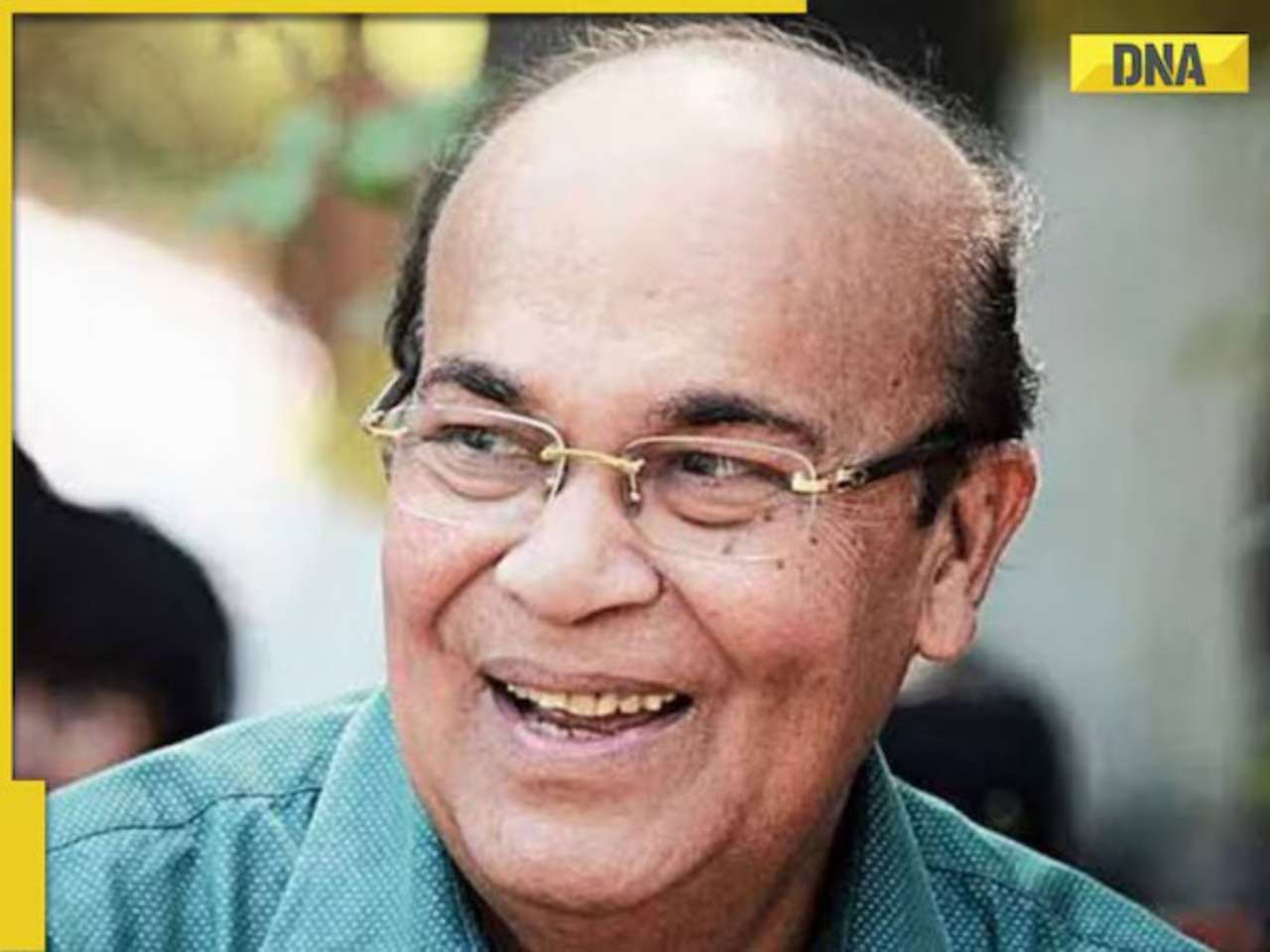
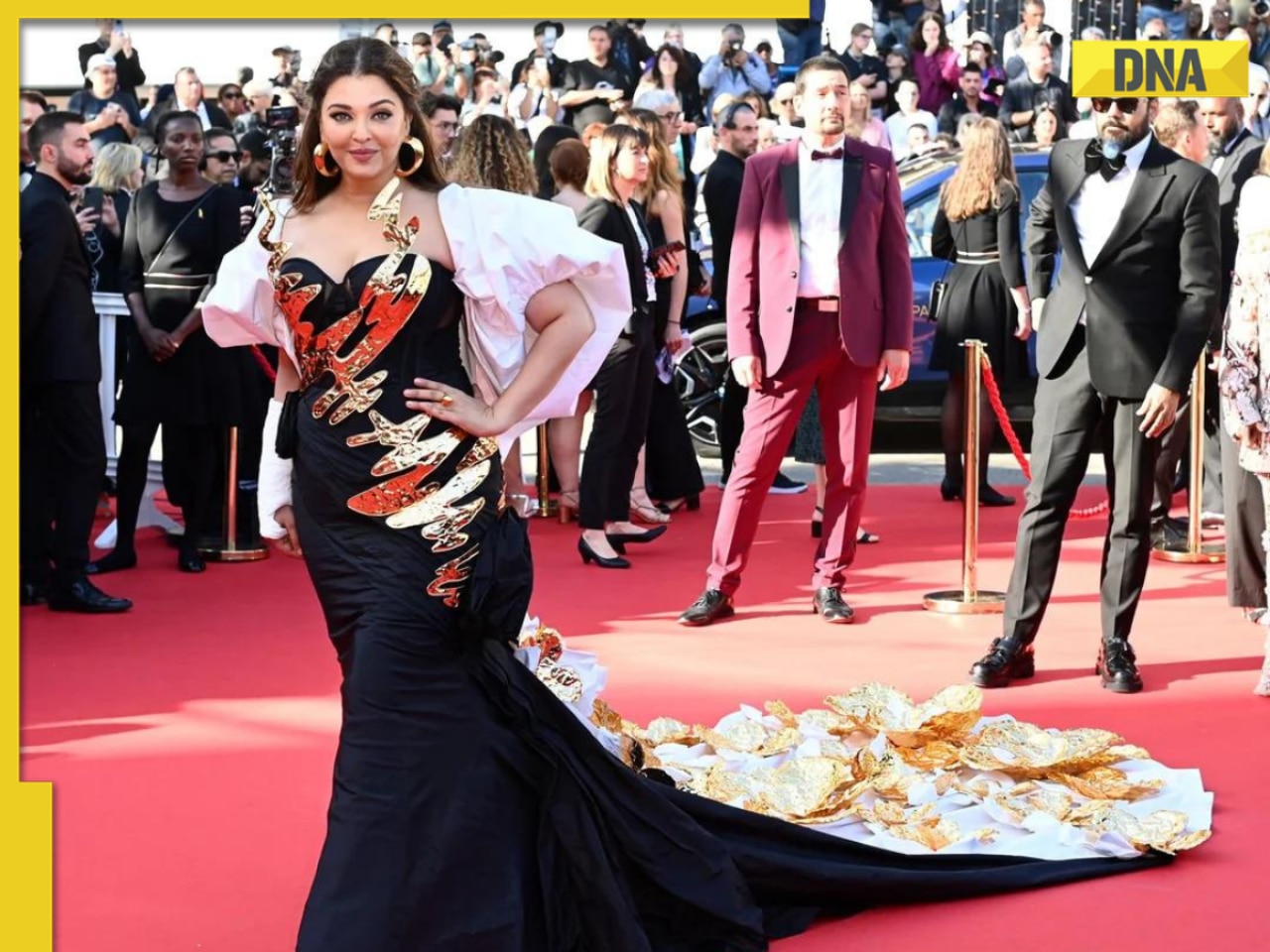
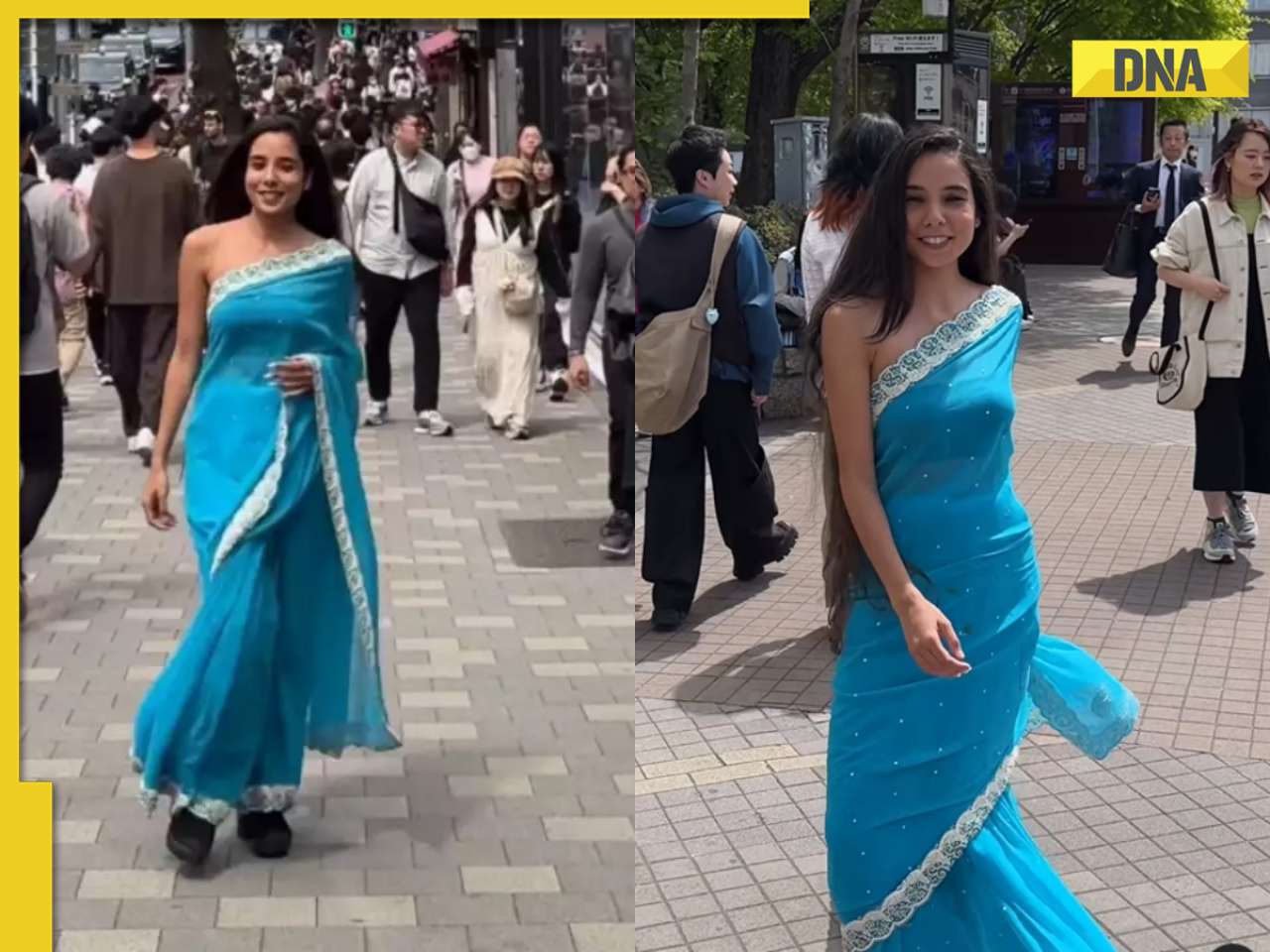

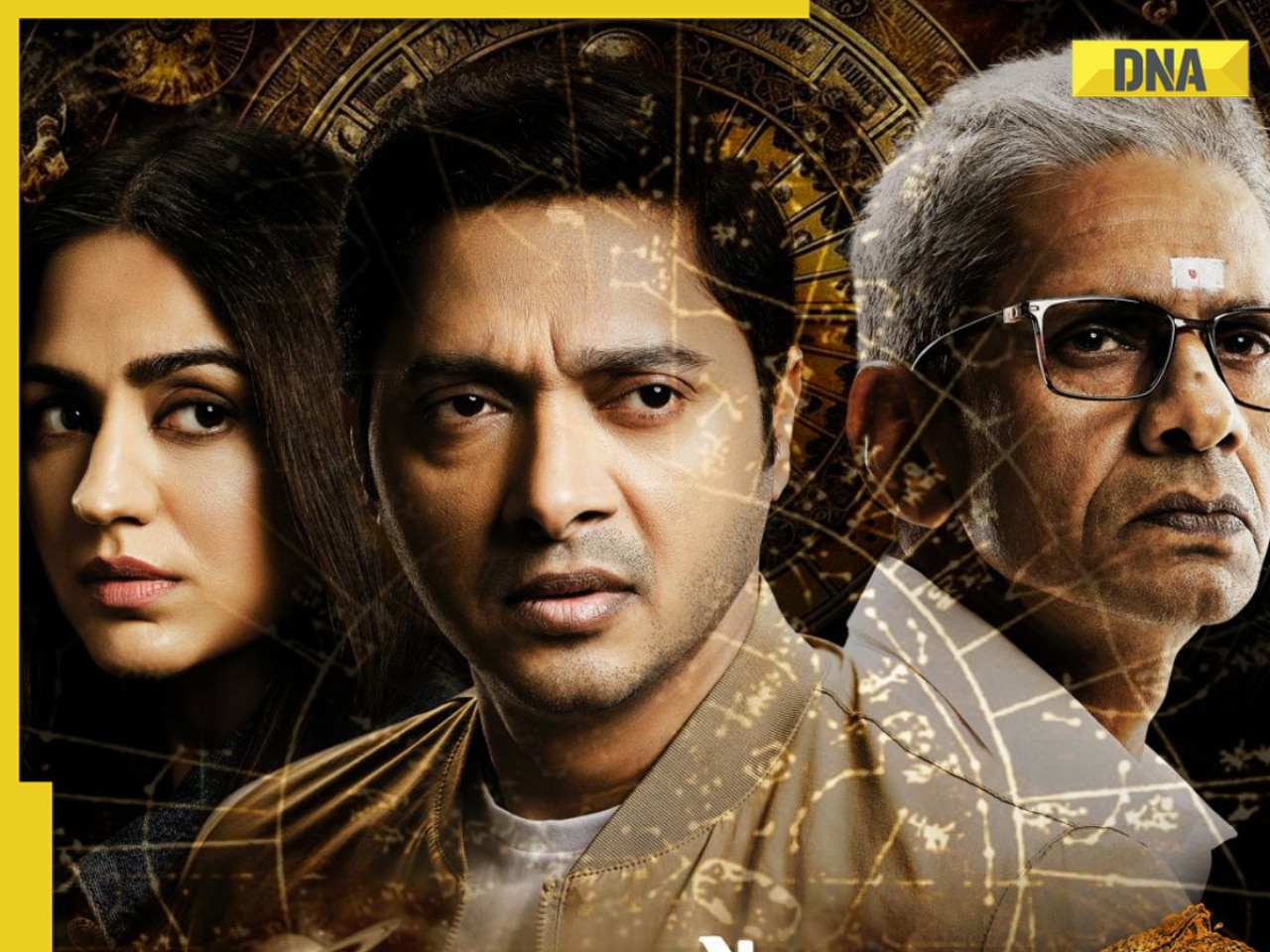







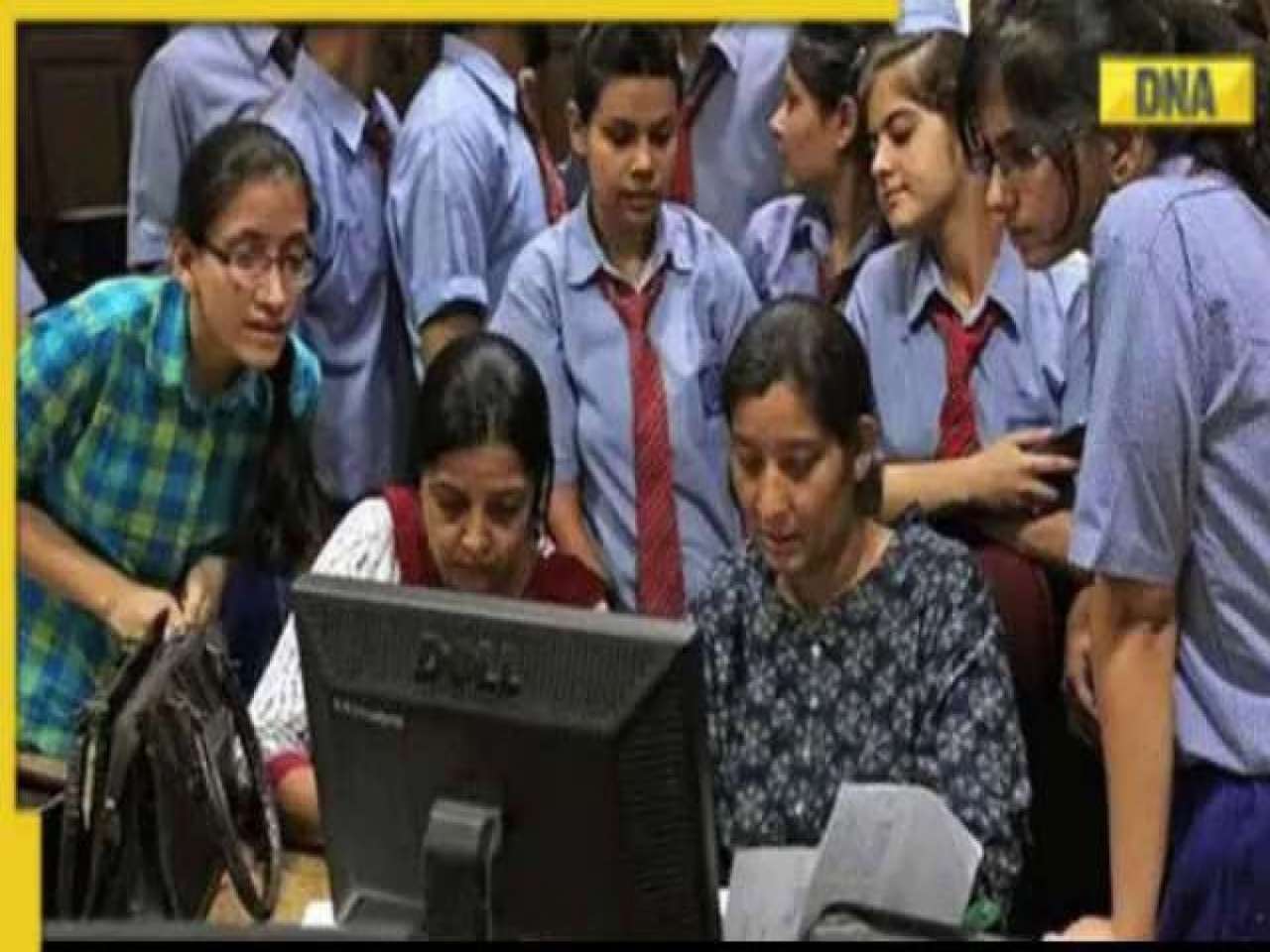
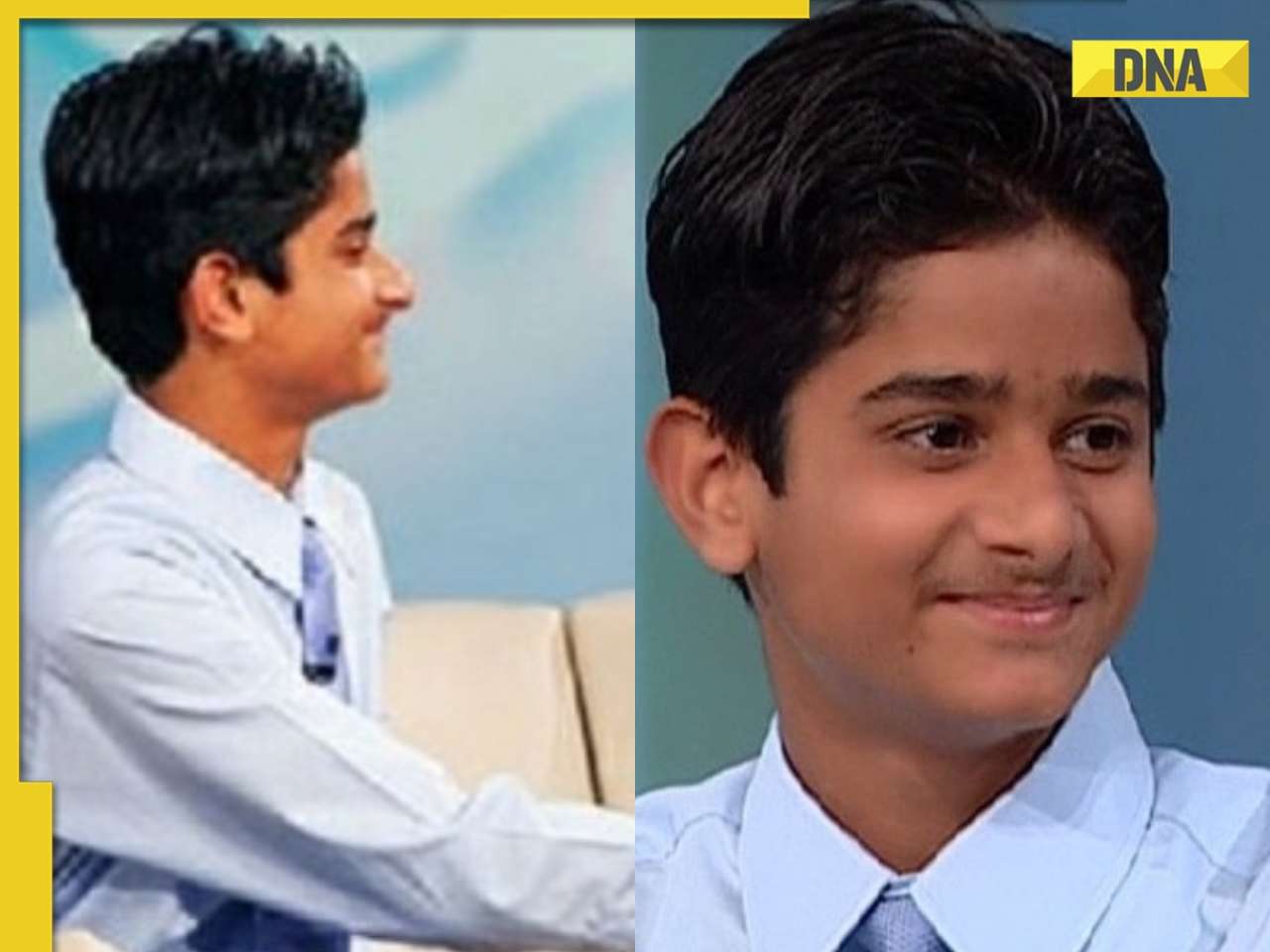
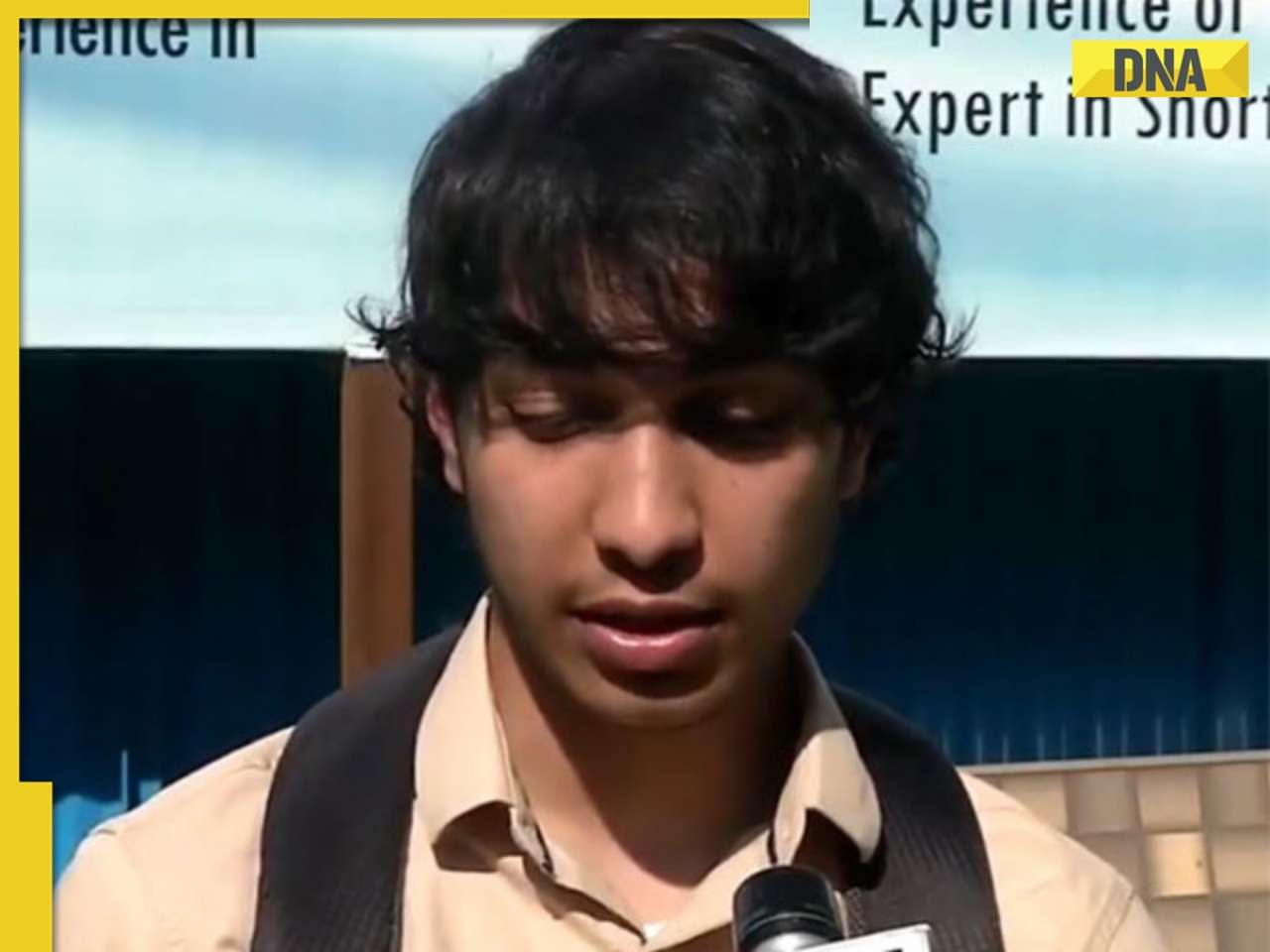
















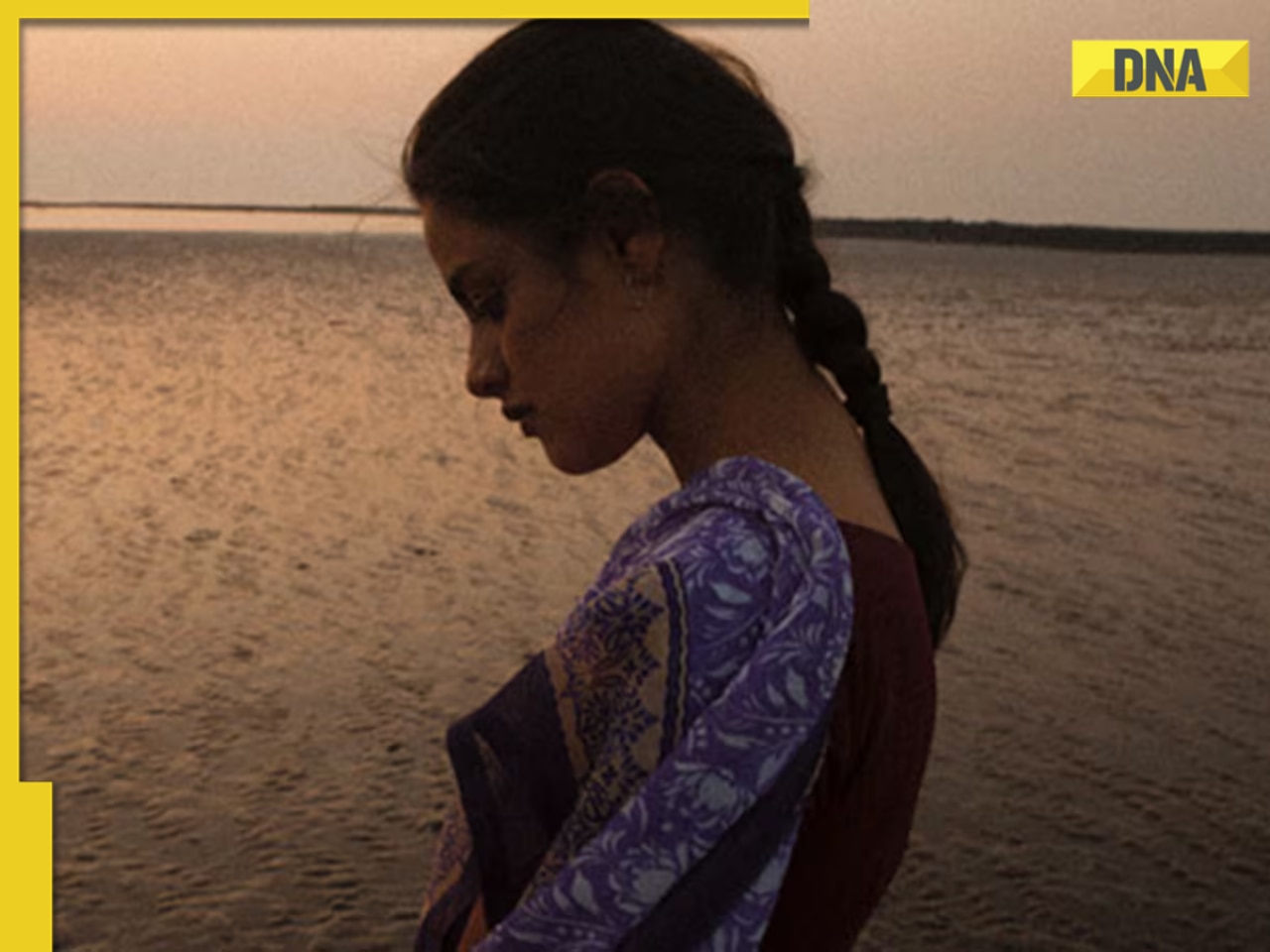


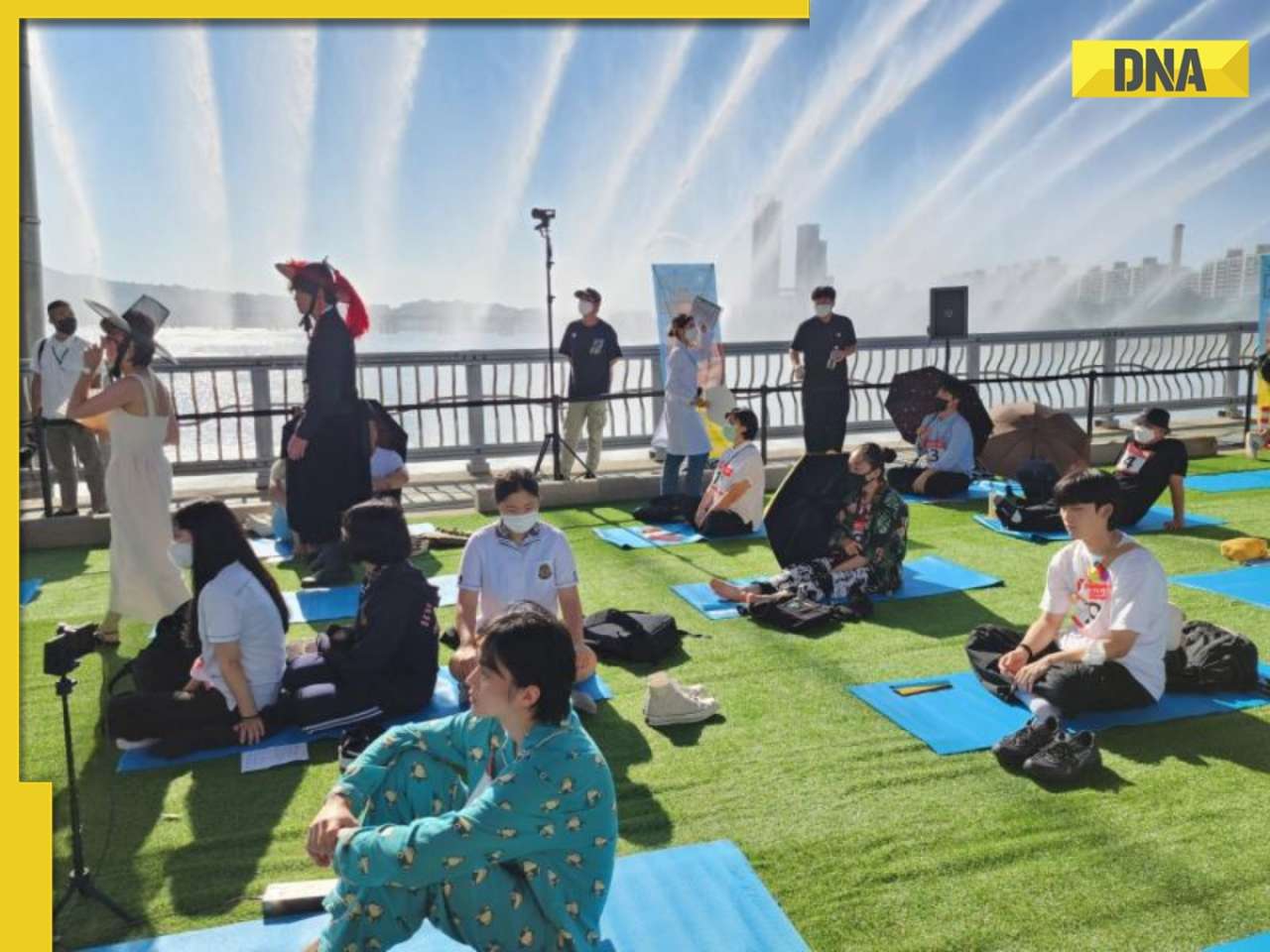
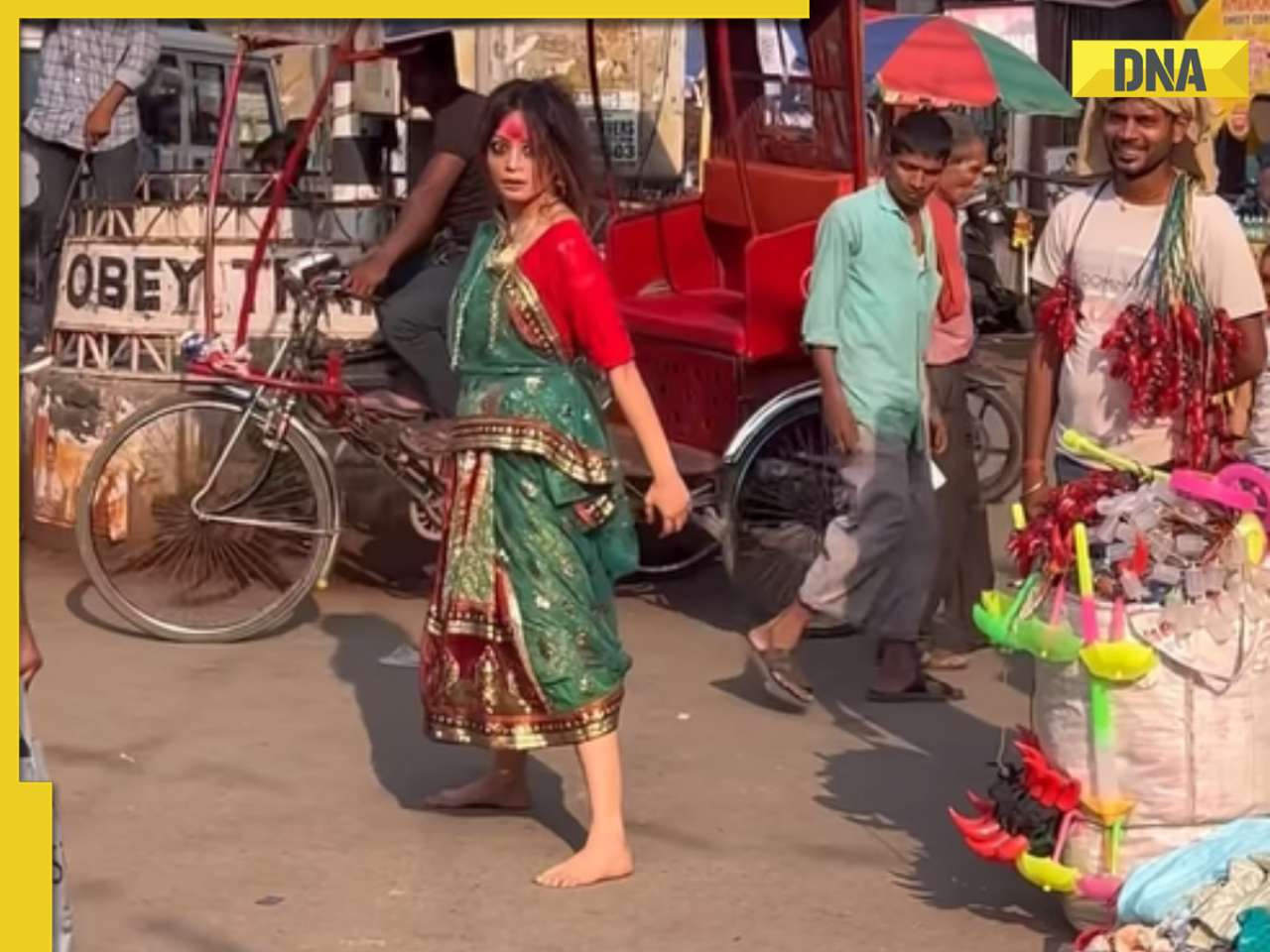
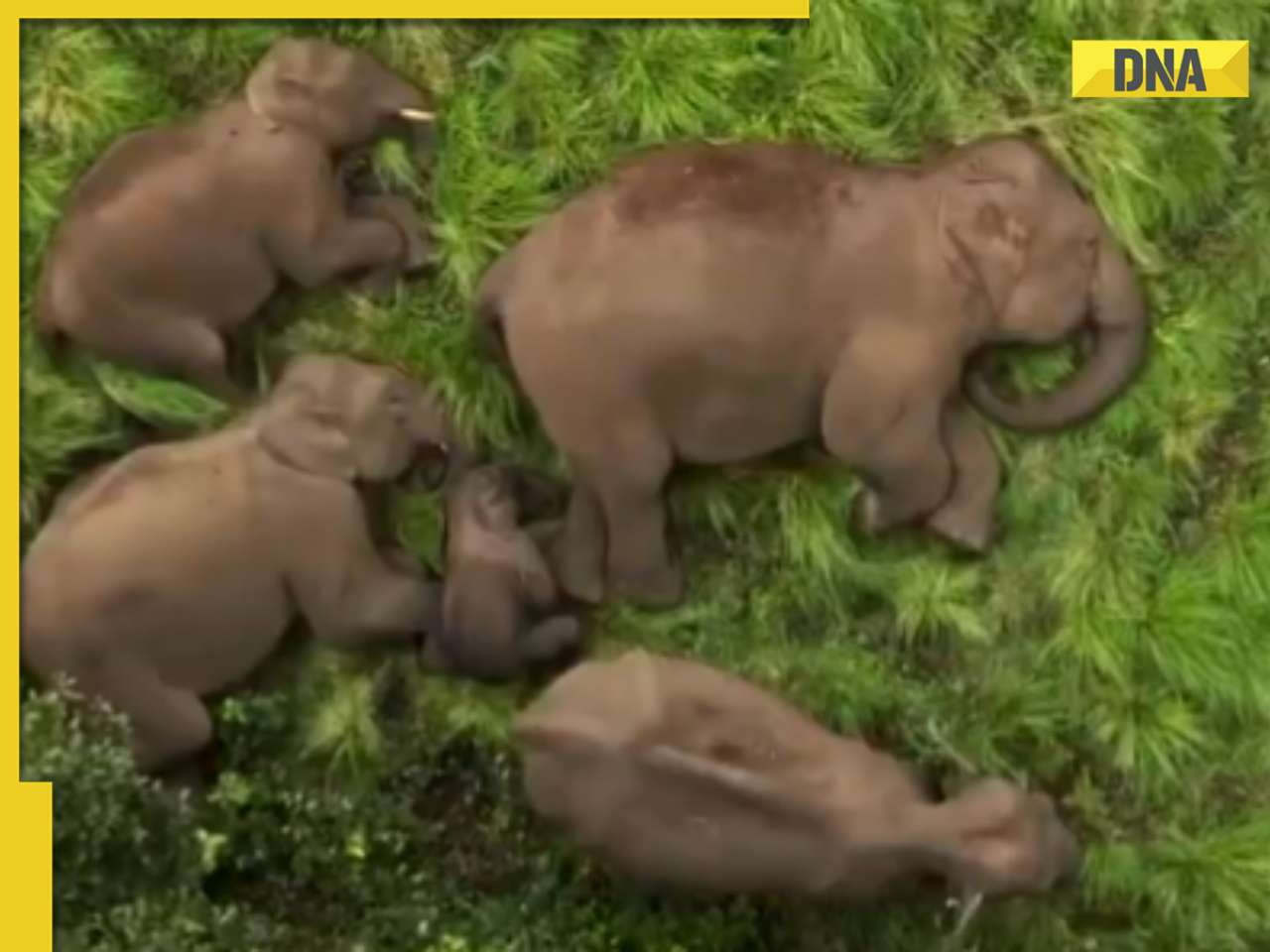

)
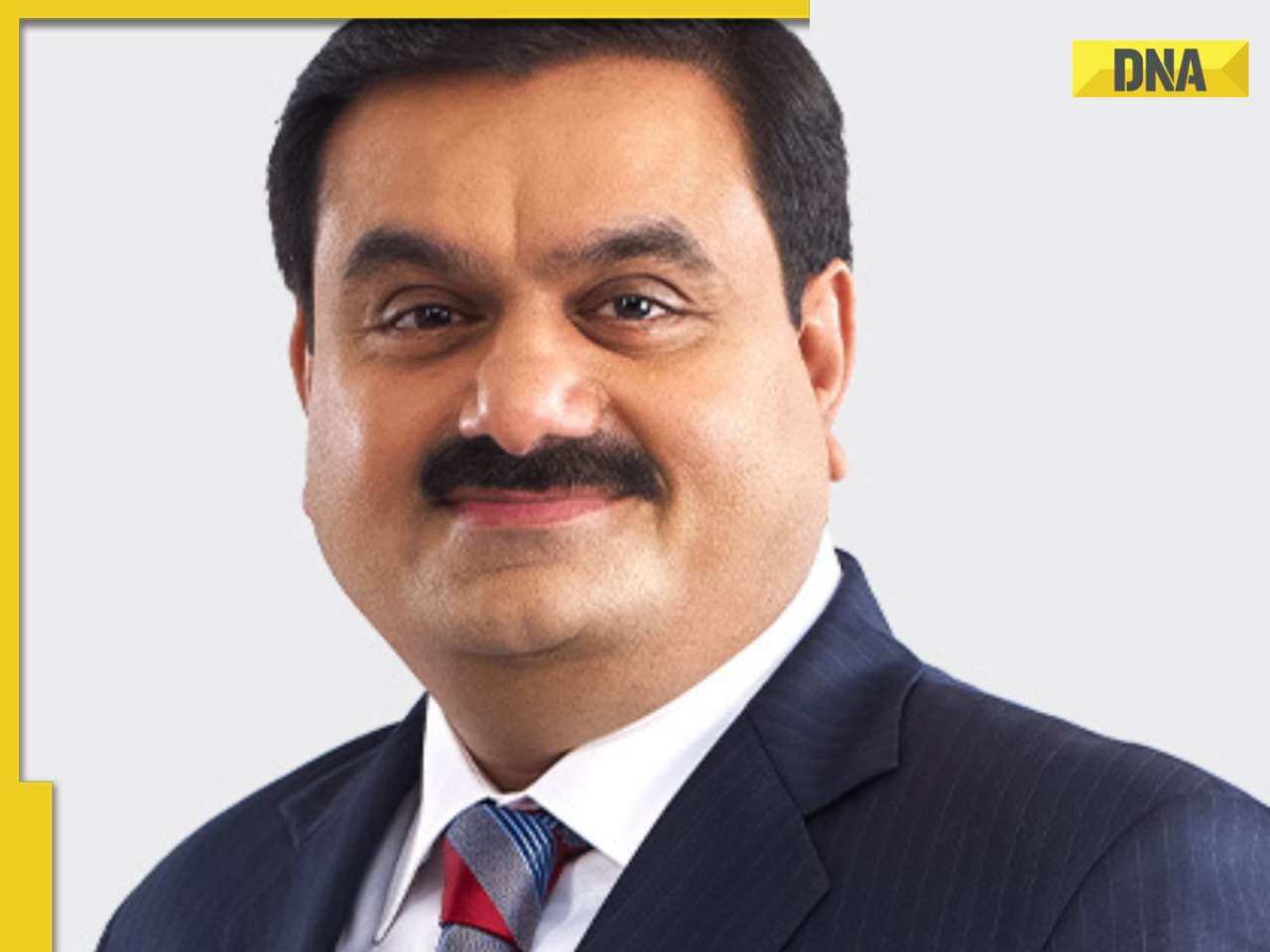








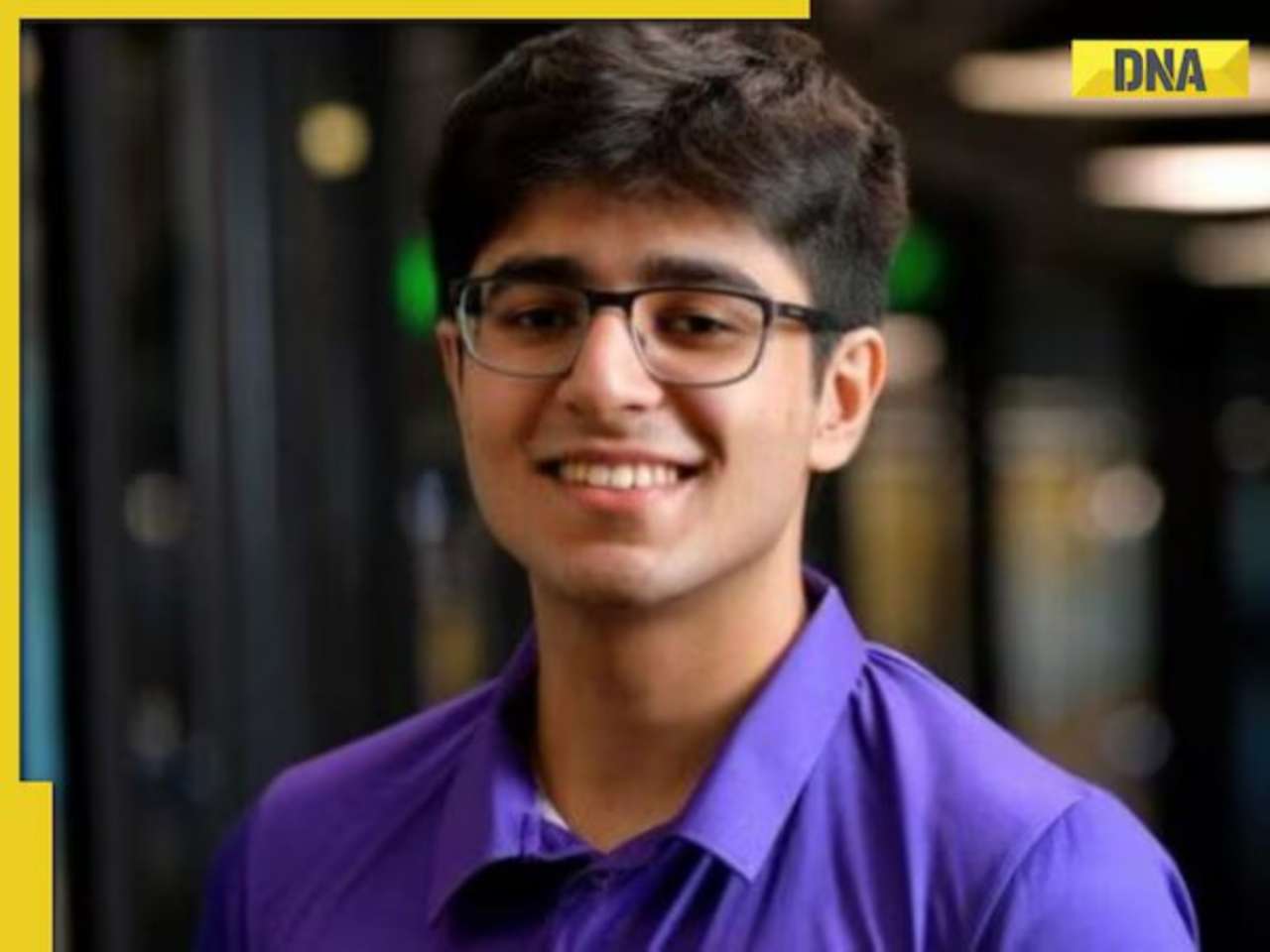


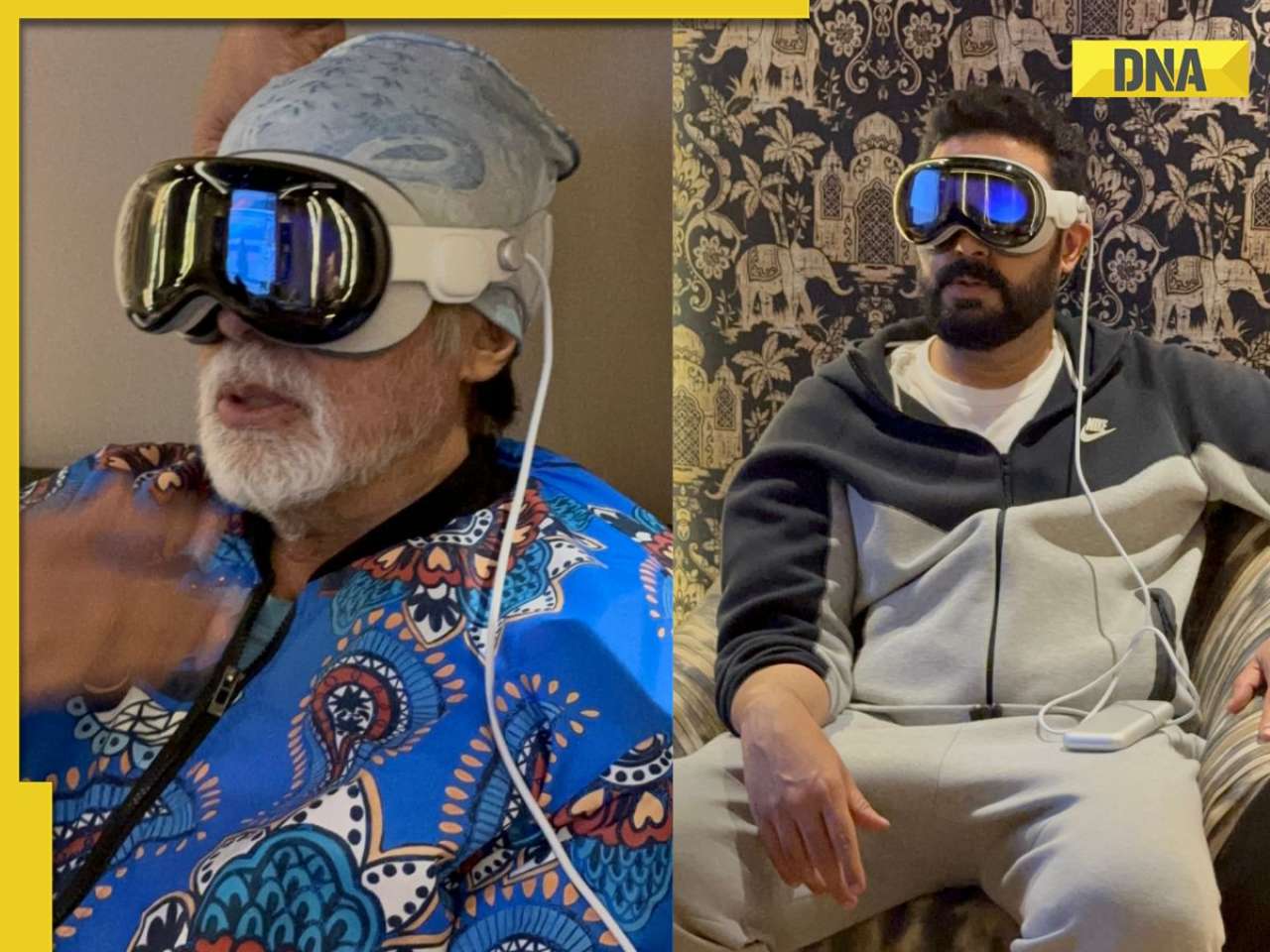




)
)
)
)
)
)